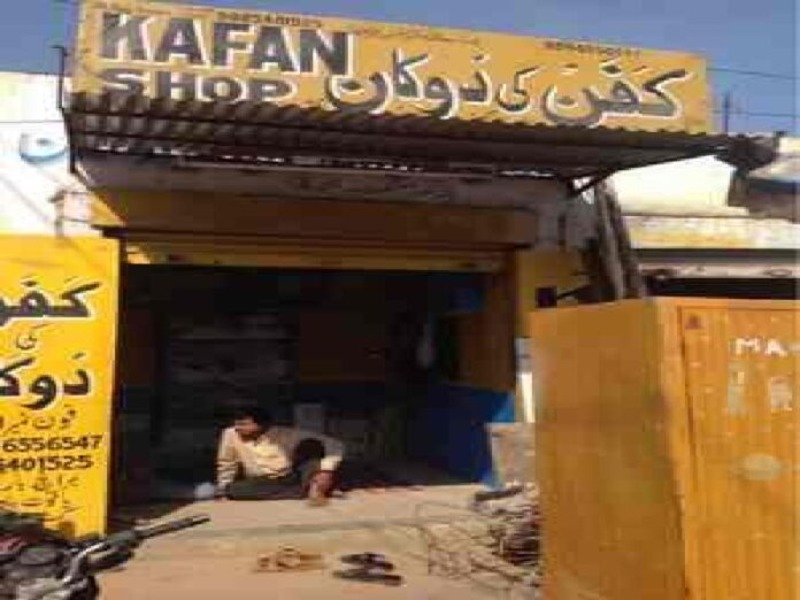In Hyderabad, ‘kafan’ sellers and ‘ghassals’ (corpse washers) face significant social discrimination. Despite their essential roles in funeral rites, they are often marginalized and stigmatized. This social exclusion not only affects their livelihoods but also impacts their mental well-being, highlighting the urgent need for greater awareness and inclusion.
A social stigma bites the Kafan sellers and Ghassals in Hyderabad. They are facing social discrimination in the present society. They urge to get into the mainstream lifestyle and live like others.
Although the sellers of kafan (shrouds), whether it is the shroud or ghusl (bath), are delighted to offer a crucial service to the bereaved, social discrimination taints their joy.
With its Irani hotels, function halls, schools, apartment complexes, and diverse businesses, Hyderabad’s Old City exudes a dilapidated but vibrant vigour that is unique to the older, more rural areas of a major metropolis.
Death also appears here; the kafan (shroud) shops in these locations serve as macabre reminders of mortality. The business owners not only sell the clothing that many Muslims wrap their bodies in before burial, but they also wash the bodies according to Islamic law before burial.
Despite the fact that these small business owners offer a vital service to grieving family members, society often treats them with contempt. In addition to the fact that individuals visit their stores under the most catastrophic circumstances, their occupation has an excessive stigma.
Ninety-nine percent of people we see outside of our outlet look down upon our job, according to Osman Bin Ali Kaseeri, owner of the Branch Barkas Kafan Store in the Dabeerpura Darwaza neighbourhood. But, when a death occurs and the family is going through a difficult time where they haven’t accepted the loss of the loved one and must also carry out the final rituals, all of a sudden we are sought for like a resource.
Consumers who outsource the preparation of cleaning and dressing their deceased loved ones may show courtesy but not respect for those they hire. Yet for Kaseeri and his fellow business partners, theirs is more than simply a modest Old City store; it’s a way to help people. Similarly, Abdul Rehman Bin Khalid is quite proud of continuing the family tradition of offering a crucial service to those who have lost a loved one, whether it is giving them a ghusl (a bath), providing a shroud, or wrapping the body in one. But the lack of social approval taints their joy.
For example, when they wish to arrange for their children to be married, their career itself creates a barrier. Whenever I go to the Anjuman Faiz-ul-Muslimeen Kafan Store in Engine Bowli, which is owned by Moulim Rafeeq Bin Al-Kaseeri meet with families for prospective matches for my children, the second they find out about my line of work they either leave right away or don’t take the alliance forward.”
The shops sell two types of shrouds – costing Rs 4,500 and Rs 3,500 each. On average, four to five shrouds per month are sold. However, during the COVID-19 pandemic, they sold the same number every day in certain phases of the first and second waves. With that came a change in many people’s attitudes, as COVID proved to be the great leveller, the owners say. The most strenuous of circumstances brought people who would otherwise steer clear of these kafan shop owners to their homes.
Recalling the demanding days, Abdul Rehman says, “People approached us at the oddest hours, not just at our workplace but our homes too. A lot of funerals took place at midnight as well. This made it dreary and harrowing for us too.”
During COVID, many grieving families generously provided help. Sometimes the kin of the departed would offer them whatever money the deceased family member had in their pockets.
That said, with things returning to status quo, so has the mindset of people towards them, according to the owners.
Fortitude is a major prerequisite for handling dead bodies, the kafan merchants stress. Be it a body with a disfigured face, or partially or fully mutilated limbs, they cannot afford to be squeamish in their line of work. Anyone who feels queasy about handling dead bodies would not be able to perform rituals like applying red powder on the body or kohl on the eyelids of the corpse.
Osman adds, “One has to be able to brave the bad odour, and not just sit beside the corpse but lift it and put it down.”
There is still uncertainty about succession while being content with the barest necessities.
Rafeeq and Osman are willing to train young people, whether they are their own children or not. “For the past 60 years, service to mankind and to God has been our slogan,” the latter regrets. But, today’s kids are unwilling to volunteer to learn the burial customs and accompanying details.
Like many young people, their offspring have chosen 9–5 jobs. With Abdul Rehman’s 30-year-old cousin helping him operate the store, there could be some hope. #hydkhabar

